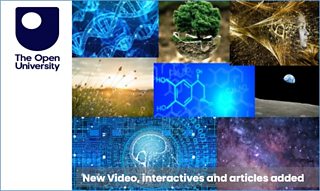GMOs; International Year of Light; Coral health
Adam Rutherford investigates the news in science and science in the news. Can a failsafe be built into genetically modified organisms to ensure they would die in the wild?
It is likely that scientists will soon engineer strains of "friendly" bacteria which are genetically recoded to be better than the ones we currently use in food production. The sorts of bacteria we use in cheese or yoghurt could soon be made to be resistant to all viruses, for example.
But what if the GM bacteria were to escape into the wild?
Researchers writing in the Journal Nature propose this week a mechanism by which GMO's could be made to be dependent on substances that do not occur in nature. That way, if they escaped, they would perish and die.
George Church, of Harvard Medical School, tells Adam Rutherford about the way bacteria - and possibly eventually plant and animal cells - could be engineered to have such a "failsafe" included, thus allowing us to deploy GM in a range of applications outside of high security laboratories.
Adam reports from this week's launch in Paris of the International Year of Light marking 100 years since Einstein's Theory of General Relativity. Amongst the cultural and scientific events at UNESCO in Paris, Nobel Prize winner Bill Philips explains how using lasers can achieve the most accurate atomic clocks imaginable and we hear how Google X is embracing new ways to manipulate light to ignite some of the team's futuristic technologies
And as the global decline in coral reefs continues as a result of human activity, Adam talks to Hawaii based biologist Mary Hagedorn who is using unusual techniques normally adopted for fertility clinics, to store and regrow coral species that are in danger
Producer: Adrian Washbourne.
Last on
Broadcasts
- Thu 22 Jan 2015 16:30BBC Radio 4
- Thu 22 Jan 2015 21:00BBC Radio 4
Explore further with The Open University
Podcast
-
![]()
BBC Inside Science
A weekly programme looking at the science that's changing our world.



